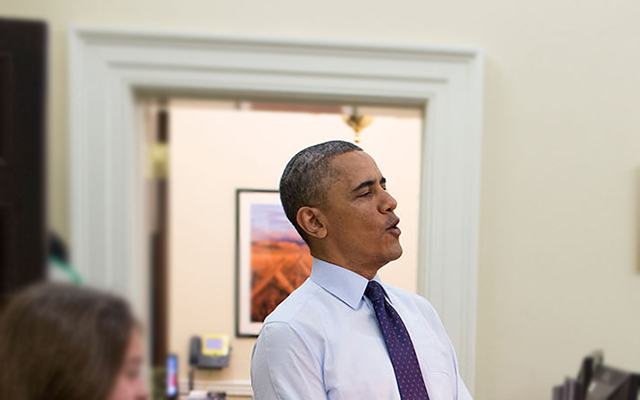Obamacare Reconsidered: Senators Push Fixes for Law They Embraced
Marguerite Bowling /
Six U.S. senators stepped up their pressure for fixes to Obamacare in a joint op-ed in Politico detailing needed changes in President Obama’s signature health law. But they didn’t always feel so strongly, a cursory review by The Foundry shows.
Taking a page from recently released findings of Democratic pollster Celinda Lake—who said Democrats shouldn’t defend the Affordable Care Act but instead call Obamacare “flawed”—the five Democrats and one Independent noted in their op-ed:
As each of us has said from the beginning, the ACA is not perfect. And as each of us has promised, we are taking important steps to make the law work even better for families and small businesses across the country.
The senators are: Heidi Heitkamp (D–N.D.), Mary Landrieu (D–La.), Mark Begich (D–Ala.), Mark Warner (D–Va.), Angus King (I–Maine), and Joe Manchin (D–W.V.)
A quick review by The Foundry, however, finds that most if not all of them didn’t have strong initial reservations about the massive bill when Obama signed it into law in March 2010.
Speaking upon completion of the legislation through a budget reconciliation process, Landrieu proclaimed in a press release:
The package we approved today is a series of targeted modifications that make a good law for Louisiana even better… [W]e should be proud of this historic legislation that will provide a health care safety net for millions of Americans.
On the day of passage, Begich said he was “proud on Christmas Eve [2009] to cast my vote in favor of this historic legislation, which will save lives, save money and save Medicare.”
He added:
Alaskans have been told the sky will fall if health reform passes, and that’s just not true.
Heitkamp—who ran her campaign on what was called a “delicate balance” of supporting Obamacare but wanting fixes—was nevertheless in full support mode after passage when she appeared at a 2010 rally organized by NDPeople.org and Change That Works to thank North Dakota lawmakers who voted for Obamacare. She told the crowd:
You need to continue your efforts. You need to continue to believe that our citizens, the people of North Dakota, will agree with this in majority if we just get them the message.
Some of the senators did express reservations about Obamacare, even while voting for, or supporting, it.
“While not perfect, this legislation will lower insurance premium costs for the majority of families and businesses,” said Warner in December 2009, after an early-morning cloture vote that would allow a final vote on the Senate’s version of the health law.
Manchin, then governor of West Virginia and a candidate for Senate, appeared on “Fox News Sunday” in October 2010. He said that although he had supported Obamacare to “move the ball forward,” he would not vote for it as a senator.
“Reaching as far as they did…in the weeds of the bill that we didn’t know about, no one else knew about until it came out, knowing that, I would not have supported that or voted for that at the time,” Manchin told host Chris Wallace. He would later tweet that he never supported full repeal of Obamacare.
Meanwhile, in his maiden floor speech as a senator, King said:
I always was surprised that summer [2009] that people were getting red in the face about a health care bill. It wasn’t the health care bill, it was the perception that Washington was somehow taking over something that should have been left to them.
Among needed Obamacare changes specified in their op-ed, the six lawmakers call for:
- relaxing essential benefits to allow for lower cost plans;
- providing more funding for health insurance cooperatives;
- allowing consumers to buy insurance plans across state lines;
- changing the employer mandate requirement to only affect businesses with 100 or more full-time workers;
- creating other portals (online or physical) for Americans to buy health insurance through the Obamacare insurance exchanges.
This story was produced by The Foundry’s news team. Nothing here should be construed as necessarily reflecting the views of The Heritage Foundation.

